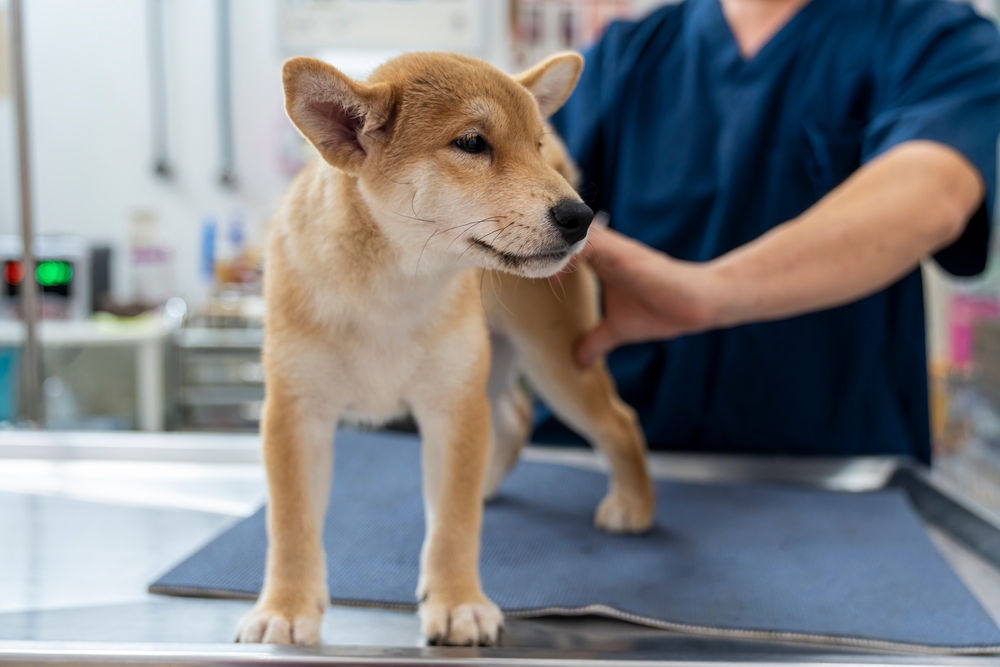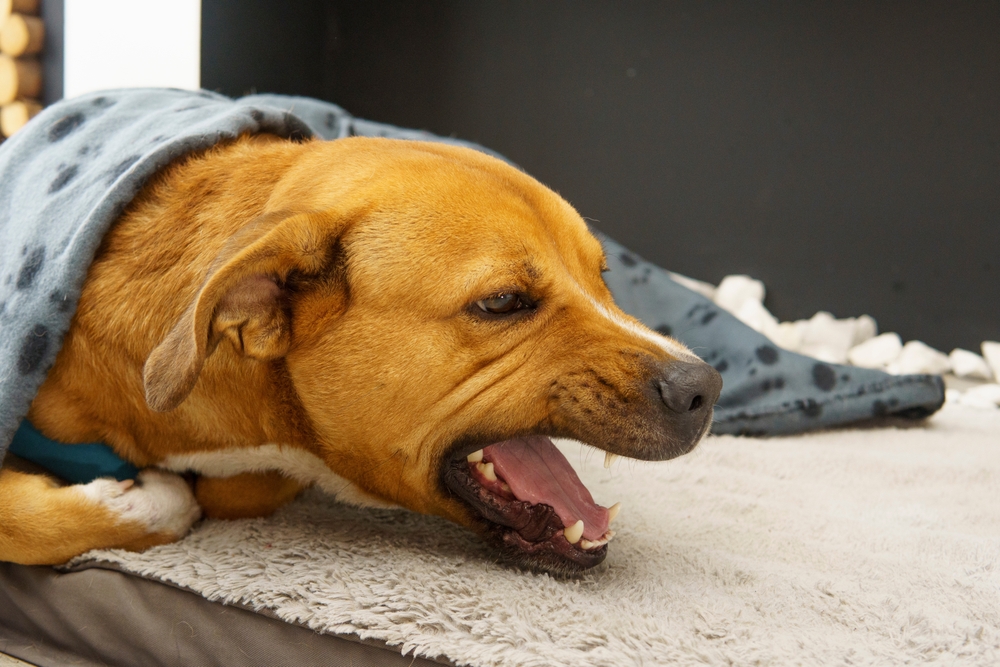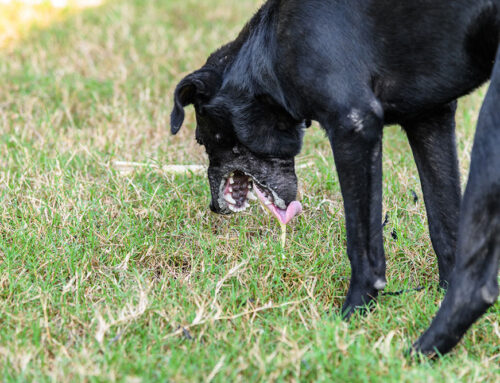Canine Cough Care: Recognizing and Preventing Kennel Cough
Kennel cough isn’t only a nuisance- it’s an airborne infection that can take hold of any dog, often when we least expect it. By recognizing early signs such as a persistent dry cough, nasal discharge, or sudden retching, you enable rapid isolation and early veterinary care. Even better: prevention remains your best strategy.
At Peak Pet Urgent Care, we’re here for urgent pet needs and can step in quickly if your dog’s cough turns concerning. Routine vaccination, careful monitoring, and avoiding contact with coughing dogs are key to keeping this infection out of your dog’s life.
Understanding Canine Infectious Respiratory Disease
“Kennel cough” is shorthand for a mixed group of infections. Veterinarians call it canine infectious respiratory disease complex (CIRDC) because multiple pathogens, both viral and bacterial, can produce similar symptoms. These organisms spread in droplets when infected dogs cough or sneeze, and on shared bowls, toys, and surfaces. Any place where dogs gather increases risk, including kennels, daycare, grooming salons, training classes, dog parks, and even busy waiting rooms.
The incubation period is usually two to ten days. Dogs often shed the infection before owners notice the first cough, which explains how outbreaks move quickly through social settings.
Recognizing the Classic Signs
Most dogs develop a harsh, honking, or hacking cough that sounds dry and may trigger gagging or retching with a small amount of white foam or mucus. Other common signs include clear nasal discharge, watery eyes, mild lethargy, and a normal or slightly elevated temperature. Many dogs continue to eat and remain playful, which helps distinguish uncomplicated kennel cough from more serious disease.
Know the red flags. Respiratory distress in pets is an emergency. Open-mouth breathing at rest, blue or pale gums, pronounced abdominal effort, or rapid breathing that does not settle with rest requires immediate care at an emergency hospital. Our team can triage and stabilize, then help coordinate transfer if advanced support is needed.
The Pathogens Behind the Cough
Bordetella bronchiseptica is the most common bacterial cause and the target of many vaccines. Canine parainfluenza virus and canine adenovirus type 2 frequently contribute as well. Other viruses, including canine distemper virus, canine respiratory coronavirus, and canine influenza, can mimic or complicate infections. Vaccination lowers risk and severity but cannot cover every organism.
Crowded, poorly ventilated indoor spaces increase exposure. Travel, boarding, or sudden changes in routine add stress that can temporarily weaken immune defenses, making infection more likely even in vaccinated dogs.
How Easily Kennel Cough Spreads
A single contagious dog can expose many others in a matter of hours. Because transmission is airborne, direct contact is not required; sharing the same air space may be enough. If your dog develops symptoms, isolate them from other dogs and postpone daycare, grooming, training, and dog park visits until recovery is confirmed by a veterinarian. Clean bowls, toys, bedding, and surfaces, and wash hands after handling your sick dog to protect other pets at home.
If you are unsure whether your dog’s signs fit urgent care or emergency care, our team can help you decide in real time. We are the missing piece between routine care and the ER, and we will guide you to the right level of care.
When Kennel Cough Becomes Complicated
Most cases are mild, but complications can occur. Dog pneumonia develops when infection moves into the lungs, causing high fever, significant lethargy, loss of appetite, and a wet, productive cough. Puppies, seniors, immunocompromised dogs, and brachycephalic breeds are higher risk.
Some conditions mimic kennel cough yet require different treatment. Collapsed trachea in dogs causes a chronic honk, especially in small breeds, and usually needs long-term management. Cardiac causes of difficulty breathing (dyspnea) also merit urgent evaluation. If your dog struggles to breathe, has pale or blue gums, or collapses during a coughing fit, head to an emergency facility immediately.
How Veterinarians Diagnose Kennel Cough
Diagnosis begins with recent history. Boarding, daycare, grooming, or dog park exposure within the last two weeks increases suspicion. On exam, listening to the chest and gently palpating the trachea often elicits the characteristic cough. In a straightforward case in an otherwise healthy dog, this clinical picture may be enough to guide care.
When signs are severe, prolonged, or atypical, additional testing helps refine treatment. PCR panels can identify specific pathogens. Chest radiographs can rule out pneumonia and reveal structural issues like tracheal collapse. Bloodwork evaluates overall health. At Peak Pet Urgent Care, we select diagnostics thoughtfully and coordinate updates to your family veterinarian for continuity.
Treatment Approaches for Recovery
Most uncomplicated cases improve with supportive care at home. Rest is key. Limit exercise and excitement to reduce coughing spells. Use a humidifier to soothe irritated airways, and choose a harness instead of a collar to avoid tracheal pressure. Your veterinarian may prescribe cough suppressants and anti-inflammatory medications for comfort. Because many cases are viral, antibiotics are not always necessary, but they are appropriate when bacterial infection is suspected or complications develop.
Monitor your dog closely. If the cough persists beyond two weeks, worsens, or new signs appear, return for reassessment. Our team will adjust the plan and, if needed, coordinate transfer when around-the-clock care or hospitalization is required.
Protecting Dogs Through Prevention
Vaccinations for dogs lower the risk and severity of kennel cough, though they do not eliminate it. Discuss Bordetella vaccination with your primary veterinarian. Dogs that board, attend daycare, train in groups, or visit dog parks benefit most. Timing matters; vaccines need time to build protection, so plan ahead. Ask facilities about ventilation, isolation protocols, cleaning routines, and vaccine requirements.
At home, separate sick dogs from healthy pets, clean shared items, and avoid crowded indoor events during community outbreaks. If your dog develops a new cough after social activities, we can evaluate, treat, and advise on isolation to protect others.
Can Kennel Cough Affect Cats?
Yes. Dogs can transmit Bordetella infection in cats, although this is less common than dog-to-dog spread. In multi-pet households, watch for sneezing, nasal discharge, coughing, and fever in cats. Kittens and immunocompromised cats are most vulnerable. Isolate the sick dog, practice strict hygiene, and contact your veterinarian if your cat develops signs.
Recognizing Dangerous Complications
Seek immediate help if your dog shows any sign of respiratory distress, persistent high fever, significant lethargy, repeated vomiting from coughing fits, or complete refusal of food and water. Our team provides walk-in triage for urgent concerns and will coordinate transfer to a 24-hour facility whenever continuous monitoring or intensive care is needed. For questions or next steps, reach out to our team or contact us.
Recovery Timeline and Return to Normal Activities
Uncomplicated kennel cough typically improves within one to three weeks. Dogs often remain contagious for two to three weeks after symptoms begin. Your veterinarian will advise when it is safe to resume daycare, boarding, and dog park visits. Reintroduce exercise gradually, starting with short, calm walks, and continue using a harness to reduce cough triggers.
Maintain vaccine schedules with your primary veterinarian, and if a new cough develops after boarding, daycare, or park exposure, contact our team promptly for guidance.

Expert Care When Your Dog Needs It
Most kennel cough cases are manageable with isolation, supportive care, and clear instructions. Peak Pet Urgent Care is the missing piece between your regular veterinarian and emergency care. We are a walk-in clinic that triages pets, sees the sickest first, and sends a discharge summary to your family veterinarian. When hospitalization or advanced surgery is needed, we help plan transfer so your dog receives the right care at the right time.
If your dog develops a new cough, especially after recent boarding, daycare, or dog park exposure, visit Peak Pet Urgent Care for evaluation. We will assess your pet, outline treatment, and guide safe return to normal activities while protecting other dogs in your home and community.







Leave A Comment